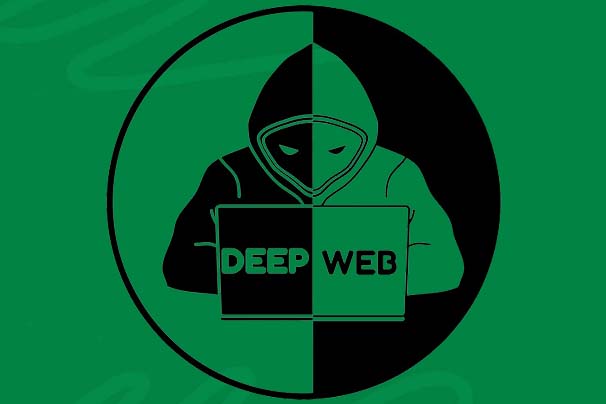Deep web, also known as the hidden web or the invisible web, refers to the part of the internet that cannot be fully accessed through standard web search engines like Yahoo, Google, and Bing. It helps to give users access to more information than they would see on the internet. And it also helps to increase privacy. The deep web includes unindexed sites, private databases, the dark web, and fee-for-service content like password-protected email accounts.

You can access the sites by IP address or direct URL. However, you may be required to enter security information, such as a password, to access the actual content. Deep website uses include online banking, webmail, video on demand, restricted-access social media profiles and pages, and web forums that require users to register to view content. It is unknown how large this web is, and there are some advantages to it.
More on Deep Web
The word “Deep Web” was invented in 2001 by Michael K. Bergman, a computer scientist, who differentiated it from the normal surface web. The Surface Web is where you can find openly viewable and retrievable content. The deep web is larger than the surface web and may have over 95% of online content. Most of this content is in database form. And it can only be accessed by subscription, password, or for a fee.
For example, information on our site is part of the surface web, and you can easily reach it through search engines, unlike later. One good thing about the DEPEB is that it helps to provide privacy. People may use it to share information with certain people or preserve it without having to make it accessible to everyone. The drawback is that many illegal activities take place there, such as malware, black markets, sex trafficking, and many more.
How to access the deep web
Although the information is unindexed by the regular search engines, it can be accessed. Accessing the contents is very safe, but it is restricted. To find sites, you will need to know the main internet address you need to use. There are some search engines or websites that mainly catalog some deep websites. For example, academic resources may be located using platforms like Web of Science, PubMed, LexisNexis, or Project MUSE.
Deep Web vs. Dark Web
These two words are often used interchangeably, but you should know that they are not the same. The dark web is a small part of the deep web. The deep web is known as anything on the internet that is unindexed or not indexed. And cannot be accessed through regular search engines like Google. It may also include content that the owners have blocked web crawlers from accessing or indexing. Some examples of what makes it up include membership websites, fee-based websites, medical records, and confidential corporate web pages. Estimates place its size between 95% and 99% of the internet.
The dark web, on the other hand, is a small component of the deep web that is hidden intentionally. It requires a specific browser, “Tor,” for users to access it. The size of it is unknown, but estimates put it at around 5% of the internet. Although it is often used to carry out illegal activities online, not all of the parts are used for this purpose.
Benefits of the Deep Web
You should be able to get far more information from it. It also includes databases and the latest TV shows that are censored on the surface web. The main benefit is privacy, which is usually provided by encryption. Encryption enables service sites to keep their content from non-paying users accessing it while serving it to their users. Without encryption, neither individuals nor firms will be able to conduct transactions safely over the Internet. It was made mainly to provide individuals with more privacy.
Frequently Asked Questions
Is it illegal to use it?
No, accessing sites that are not publicly available or not indexed is not illegal. However, it is very illegal to misuse it or use it to steal information from other people found on the websites. So, you don’t have to worry about being caught if you are using it legally.
What is an example of a deep website?
Some of the examples of things you can find include internal company networks, online banking, email, subscription content, or non-public social media pages.
Is Google a part of the deep web?
Generally, it refers to the sections of the internet that cannot be accessed through search engines like Google Search or Bing.
Why is it called the deep web?
This is because it refers to all the web pages that are not identifiable by a regular search engine. Sites may be hidden behind security walls, like passwords.
How many types of deep webs are there?
The deep web is composed of three components. These distinct components include the dark web, the normal web, and the darknet.
